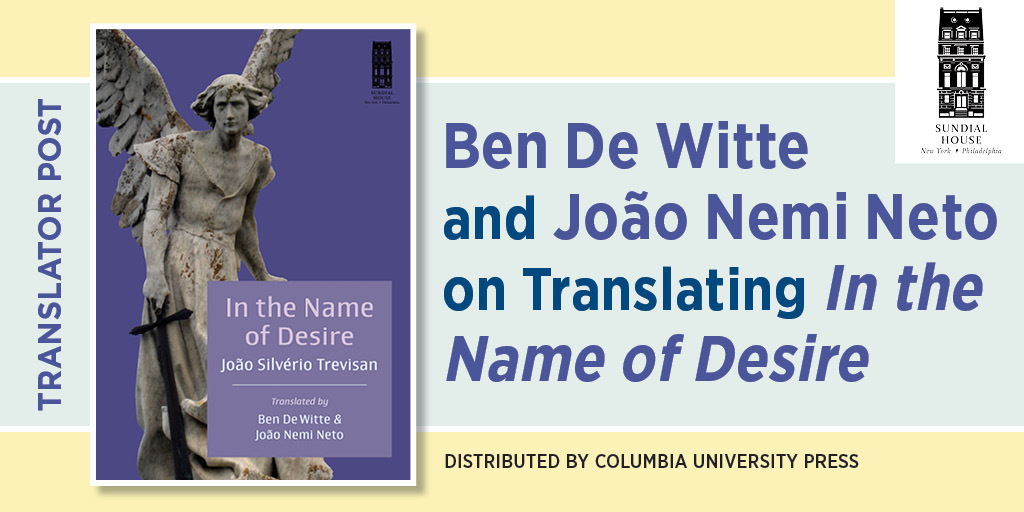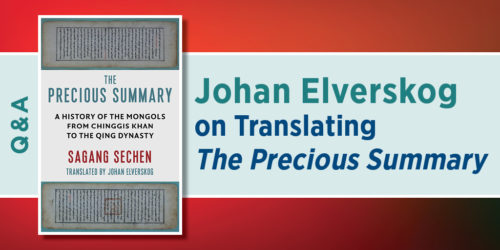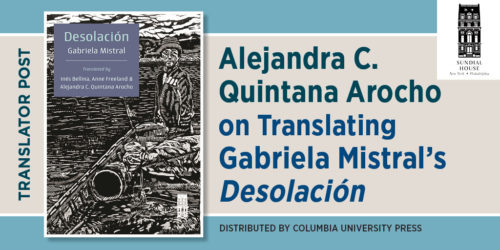Ben De Witte and João Nemi Neto on Translating In the Name of Desire

Let the power of desire not be underestimated, capable of moving mountains.
—João Silvério Trevisan
João Silvério Trevisan published his third novel, In the Name of Desire (originally Em nome do desejo), in 1983 at a time of climactic political and social change in Brazil. The military dictatorship, established in 1964, was in its last throes, officially ending in 1984 and opening a door to democratic transition. However, this climate of political optimism could not prevent the AIDS crisis from casting an insidious shadow over the prospect of sexual emancipation, especially for gay (and other) sexual minorities, who became invariably stigmatized with associations of death and disease.
In the Name of Desire does not refer directly to this moment of turmoil but is set at an unspecified time before the dictatorship, probably in the 1950s, in a rural area near São Paulo. Even so, the novel’s stated interest “in the name of desire” (in a dual sense connoting both the nature and the authority of desire’s ways) can definitely be read as revealing its author’s longing for sexual and spiritual liberation. Trevisan had been a gay activist since the late 1960s and at the time had already developed a multifaceted artistic oeuvre (including novels, short stories, essays, cinema, and plays) to voice his critical concerns.
Although homosexuality is named nowhere explicitly, the novel insists on the inevitability of the protagonist’s homoerotic passion.
The storyline of In the Name of Desire is straightforward: the narrator revisits his years in an all-boys religious boarding school, reminiscing about his nascent homosexual desire and first love and the events leading up to his dramatic expulsion from the seminary. Although homosexuality is named nowhere explicitly, the novel insists on the inevitability of the protagonist’s homoerotic passion.
The novel anticipates Trevisan’s statement a few years later in his foundational study on the history of homosexuality in Brazil, Devassos no paraíso (translated as Perverts in Paradise), that “desire cannot be denied a name. . . . From the simple fact that something resembling homosexual desire exists, it has to be referred to by some kind of designation.” However, as a work of literary fiction In the Name of Desire takes a different road from Trevisan’s scholarly essays: without the availability of an explicit vocabulary of homosexual identification, the novel draws on a mélange of religious, apocryphal, poetic, and popular texts to give meaning to the mystery of desire. Hence the novel’s remarkable choice to develop the storyline by means of a spiraling series of questions and answers—akin to a questionnaire in the manner of a confessional.
Following the tortuous ways of desire in In the Name of Desire leads its protagonist to the edge of a precipice. Yet even worse would be to deny desire, Trevisan seems to suggest: to crush ourselves and to remain blind, as the epigraph above posits, to “the power of desire” as a radical potency that properly harnessed is “capable of moving mountains.” Simultaneously a scathing critique of religious institutions and a celebration of mystical release, so too Trevisan’s now classic gay novel defends not only same-sex desire but all libidinous life forces that society can suppress only at its own peril.
Ben De Witte (he, ele, él) holds a doctorate in comparative literature from Rutgers University and currently teaches courses in literary studies and translation at the University of Leuven, and João Nemi Neto (he, ele, él) is a writer, translator, and teacher. They are the translators of In the Name of Desire: A Novel, second edition.








